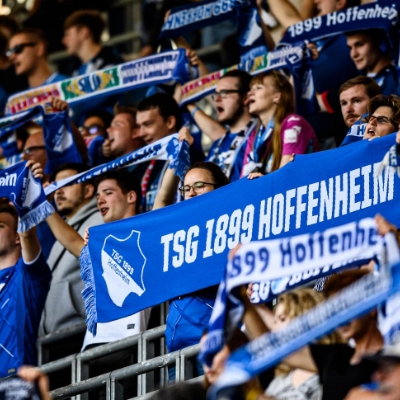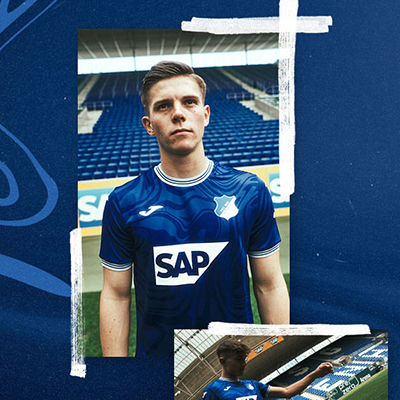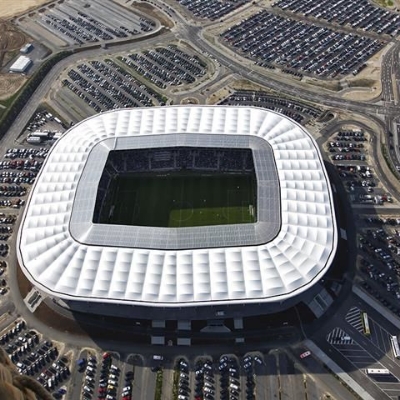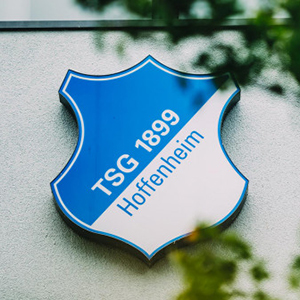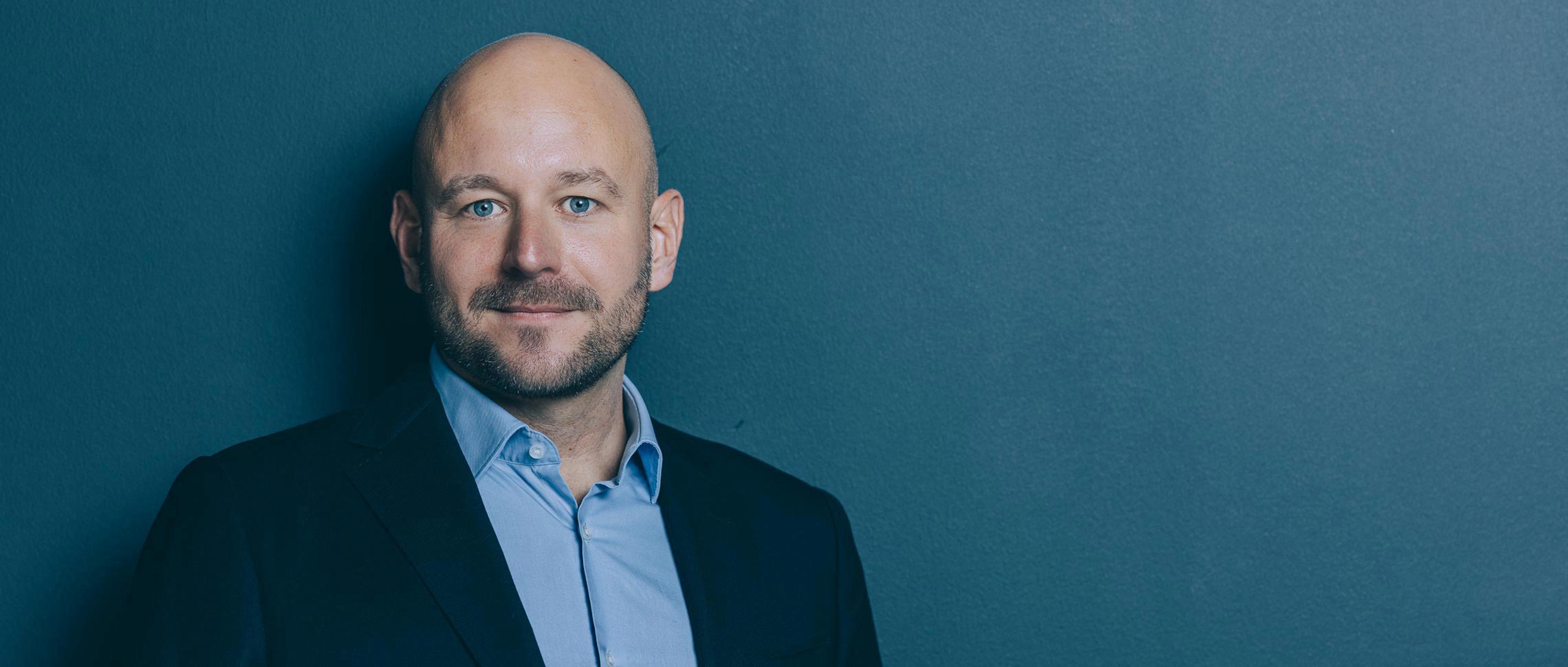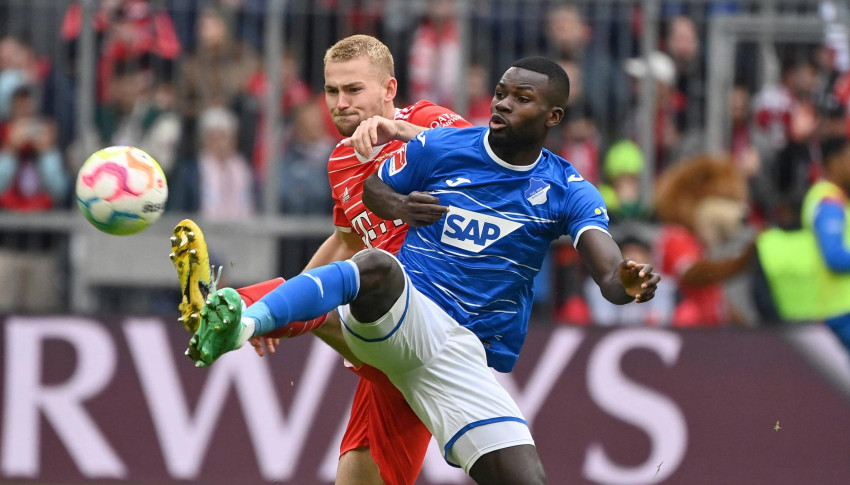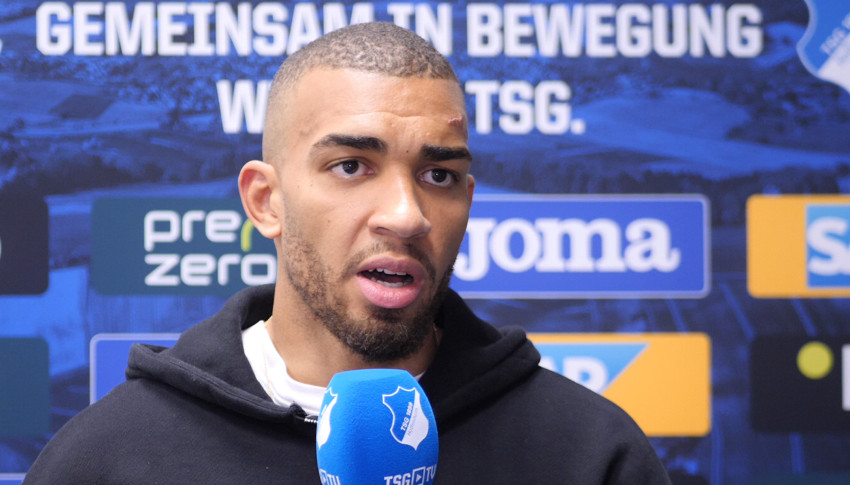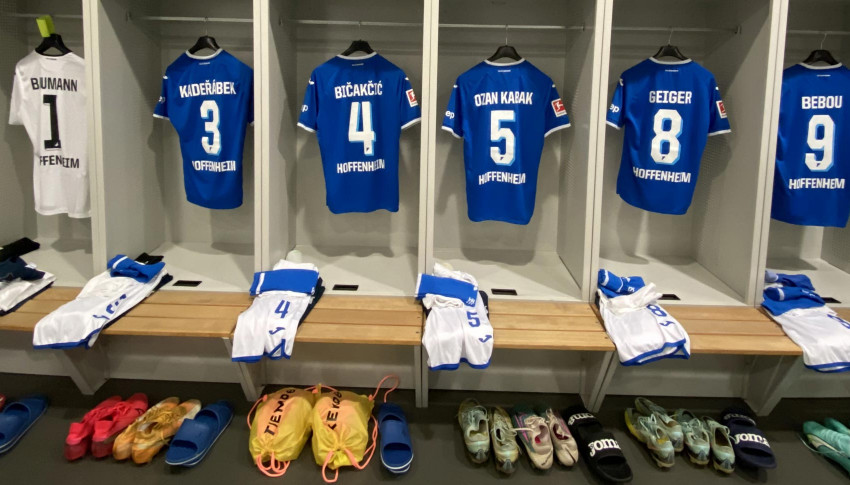''We've written history together''
Alex, on Sunday you'll celebrate your tenth anniversary in the job. You were promoted to the role of director of football at TSG Hoffenheim on 2 April 2013. How do you feel now, ten years later?
"I still feel amazing and I remain incredibly grateful to Dietmar Hopp for giving me this opportunity back then. It was far from self-evident that I would be given this job, and that would still be the case today. Ten years ago, if someone had painted a picture of everything that was to come - with all the ups, the special moments, not to mention the downs - then today, a few days before the 10th anniversary, I would say: fantastic, what a journey, I would love to go back and do it all over again. It was great to help shape this story here and to be able to continue to do so now. Even in a challenging time like the one we're going through just now."
You've mentioned it: with nine matchdays left, TSG are 15th in the table and face a trip to Bremen at the weekend. Is the current predicament giving you sleepless nights?
"Fortunately, my sleep is as good as ever, which is extremely important in these times, because I can regenerate at night and then have the energy to get back to work the next day. I don't want to make too big a deal of it either. Of course, the situation is draining and challenging for me, but on the other hand, I still have the privilege of working here in the Bundesliga. I think if we look around us in society, we see so many people who are facing challenges of a completely different magnitude. One thing that's really different in phases like these is the mindset you're in during the day, because you're confronted with far more negatives. However, after ten years in the job I have built up a wealth of experience, including how to deal with difficult sporting situations and how to make hard decisions. I take care of myself and have learned to always find some private space despite all the responsibilities, which helps me to switch off when I need to. When I have family time in the evening, like the last hour before the children's bed-time, it's important not to be thinking about anything else. You have to know how to switch off again and again. If your mental immune system works, you can keep a clear head for the tasks you have to complete."
The sporting situation at the moment is a challenging one. What can a sporting director do to help?
''Everyone can have an impact, everything hangs together. Of course it's ultimately up to the players on the pitch at the weekend, but I have a special role as sporting director, as I was the one who had a key role in putting this group of players together. I believe that as a manager you can and must have a significant influence through communication, charisma, resilience and experience. I can neither head the ball to safety from an opposition corner nor score a goal, but I can influence a lot of things by creating good framework conditions and establishing a good spirit. It's important to be aware of the influence you can have, and that doesn't just apply to me. You always make an impact - for better or for worse."
How do you view the team and coach Pellegrino Matarazzo in this situation?
"I'm in contact with Rino everyday, sometimes just for a brief conversation, sometimes longer, and I observe a lot of training sessions to get a feel for the team and the current circumstances. I want the boys to know that there's someone here to help them, even if I'm not wearing a tracksuit. For the past few weeks I've noticed that something is happening at the club - on the training ground, in the office, around the place. There is a sense of cohesion and there is faith, the situation has been acknowledged and accepted. That's the key foundation for getting out of this. After the win against Hertha BSC, it's now a task for all of us to get the right performances and results over the long term so that we can start our 16th Bundesliga season in August. That in itself is a great achievement.''
You've been at the club for 11 seasons, and have experienced two previous relegation battles, in 2013 and 2016. Are the situations comparable?
"Not really. In 2013, for Markus Gisdol as the new head coach and for me as the new sporting director, the focus was more on planning ahead for what looked like a probable relegation to the second tier. We had no personal responsibility for the predicament the club was in at the time and were able to go in unencumbered. With a lot of heart and soul, with a lot of commitment, with skill and also with a bit of luck, we managed to achieve a great turnaround. The 2015/16 season was kind of a mess right from the start after we missed out on a possible qualification for Europe in the previous season. Not much was going right, but after the bold and extraordinary decision to promote Julian Nagelsmann as the new coach, we got back on track relatively quickly and everyone could see that we were on the up. Now the situation is that there is still a quarter of the season to play and we are only just above the drop zone. We're in the midst of a very challenging phase, but I have absolute belief that we're going to make it. The team is intact, the coaching team, led by Rino, is moving forward with a lot of energy and, despite the circumstances, I see a steadily growing stability and great team spirit. I'm really happy about the sense of achievement after the win over Hertha BSC. We had to work really hard for it, a lot harder than for other wins in the past. We deserved better results before but we didn't get them, we kept being struck by failure again and again. But we always got up and kept going. That alone gives me great confidence.''
Looking back with the benefit of hindsight, are there decisions you regret?
"Sometimes you're not doing yourself a favour by going back over past decisions again and again. The most important thing is the moment in which these decisions were made. It's vital that decisions are made carefully, with the best of the knowledge at our disposal and full conviction that what we are doing was right. Then you can feel comfortable accepting the decision you've reached, no matter how things might pan out. I think it's good when you feel responsible, and I feel responsible. If you know that you are responsible for things, and not just a victim of circumstance, then that empowers you to change things. We haven't got everything right, but that's never the case. I am aware of that. But you can't constantly pick apart everything you do, even after negative developments, and you can't get too hung up on the past and on what might have been. I reflect on things, sure, but I also have new decisions to make the next day. Yes, you need self-reflection and mindfulness, but you should invest as much energy as possible in the future and on finding positive solutions. Then, as a manager, you can proceed with confidence, conviction and composure.''
Now the short-term goal is achieving survival in the Bundesliga.
''Of course, but if we're to achieve this goal, we first have to come to terms with the fact that the route to doing so is all part of a process. Results always follow performances and not the other way round, certainly not in the long-term anyway. This season obviously took a catastrophic turn after Matchday 10 in terms of results, but I think keeping a sense of perspective about where we stand as a club can help to restore a bit of calm. Economically, we are a mid-table team in the league, and in the six seasons between 2016 and 2022, we were in competition for European qualification right to the end on five occasions, and managed to achieve this three times. We've all written history together here. It's an incredible record, and a really cool achievement for a team from by far the smallest place in the league. We are currently in the bottom third of the table again after many years. It's not a pleasant situation to be in, and it falls short of the standards we've set for ourselves. But now it's about acceptance and having a firm belief that we can master this challenge. I think keeping our feet on the ground is important in order to evaluate our past achievements, both internally and externally.”
What are you hoping for from TSG over the next five years?
''I hope that more people out there will be able to see the work we've done and continue to do here. TSG means a lot to the people in the region and the focus should always remain on the things this club stands for: family, the village, outstanding youth work, innovation, sporting success. A noble objective is to remain a stable fixture in the Bundesliga, maintain our focus on innovation, youth and cutting-edge thinking, not to mention notch up a few more sporting highlights from time to time.''





